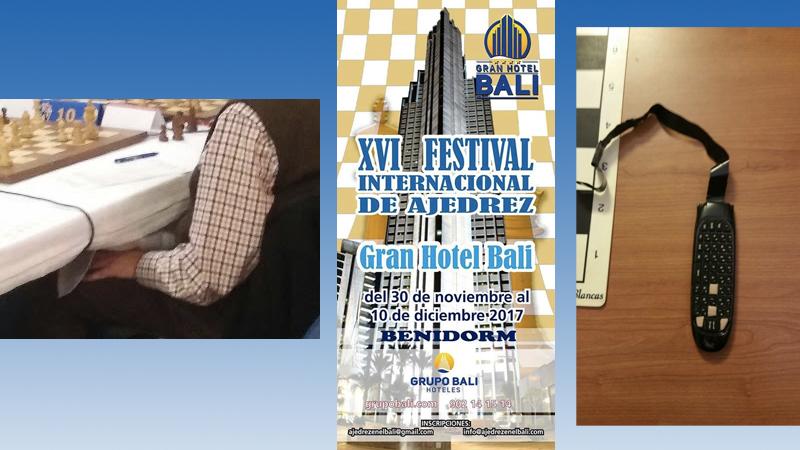
Alleged Cheater Expelled From Spanish Tournament
An amateur chess player was expelled from a chess tournament in Benidorm, Spain after an electronic device similar to a TV remote control was found in his pants.
The player, who was a participant of the B tournament for players with an Elo below 2000, was checked by arbiters after suspicions of possible cheating. At times his games had shown a level of play much higher than is rating.
The arbiters found an electronic device, similar to a TV remote control, hidden in his pants. (See images above, courtesy of the An Andaluz y el Ajedrez blog.) The player was expelled from the tournament and, as mentioned in a press release, the arbiters will report the case to the Spanish Chess Federation as well as the World Chess Federation (FIDE).
Article 11.3.2.1 of the FIDE Laws of Chess mentions that "[d]uring a game, a player is forbidden to have any electronic device not specifically approved by the arbiter in the playing venue." Article 11.3.3 notes that "The arbiter may require the player to allow his clothes, bags, other items or body to be inspected, in private."
After hearing about the news, the president of the Torrefiel chess club announced that the club will take disciplinary measures against their member.
The 16th International Chess Festival took place Nov. 30 to Dec. 10 in the Bali Hotel in Benidorm, Spain. The festival contained 18 different events and around 1,300 players participated.
Chess has seen numerous cheating cases over the past decades. If reported to FIDE, cheating is considered to be a breach of the Code of Ethics, and therefore it is the Ethics Commission that deals with it.
The Commission's homepage provides a list of decisions, which includes cases like a cheating incident at the same tournament in Benidorm in 2014 by a Bulgarian player. Also in 2014, a Dutch player was caught using his mobile during a game at the Iasi Open in Romania.
Around the same time a Bulgarian player, after playing way above his rating level and refusing to be searched, was banned from play twice by his federation. In 2012 the FIDE Ethics Commission sanctioned three French players for their involvement in a cheating scheme during the 2010 Chess Olympiad.
In 2014 FIDE established an Anti-Cheating Commission, which came with guidelines and recommendations (here in PDF) for preventing cheating, instructions for arbiters, a system to follow games and find computer cheating and a set of punishments.


